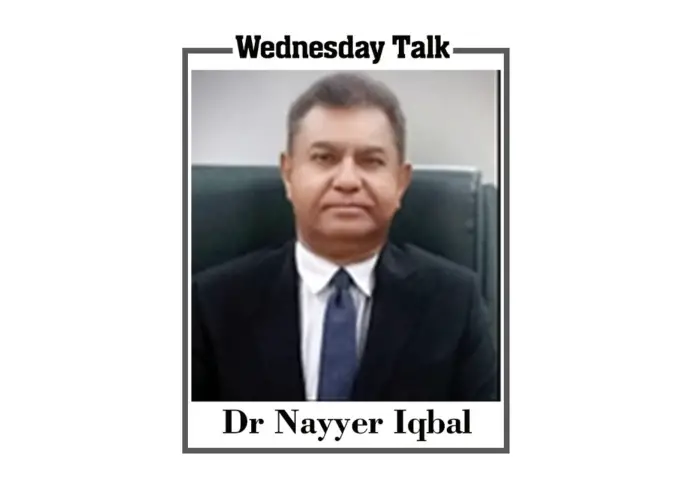Peoples Republic of China is in the grip of anti- Zero-tolerance COVID-policy of the government. The worrisome factor for the leadership is not only that the magnitude of agitation has multiplied over the weeks but its nature has also assumed a different shape. Initially, it was just a demonstration of public resentment against the harsh measures to control the proliferation of pandemic but gradually it has transformed into an anti-government movement sometimes challenging the very basis of the political system prevalent since the 1949-Revolution. Probably, ‘anger over unrelenting lock-downs fuelled deep-rooted frustration with the state-apparatus’. Needless to say that such -like agitations are very rare in China-like totalitarian regimes. Some political analysts do not hesitate to compare the ongoing unrest with the Tiananmen Square protests of 1989.
The first serious agitation took place in Guangzhou on 14 November where public being tired of remaining inside houses and quarantine centers for months came-out in open. They marched on the main boulevard of the city raising anti-policy slogans and turned violent when asked to get back. Soon the demonstrations spread to the other towns like Nanjing, Wuhan and Beijing. Meanwhile, the Urumqi incident dated 24 November wherein at-least six people could not be rescued from a house-fire due to COVID restrictions served as a catalyst for the outrage. It needs to be highlighted that Xinxiang province, in the far-West China, of which Urumqi is the capital, has already been sensitive due to alleged human rights violations against Uyghur, a Muslim minority. An intriguing factor is that in most of the towns, University campuses have been the center of political unrest, which in all likely-hood, reflects the attitude of the upcoming Chinese generation. Particularly, a huge demonstration in Tsinghua University, Beijing remained under discussion because it has been the alma-mater of President Xi Jinping.
During the agitation, the callous behavior of the government has added fuel to fire. Instead of understanding their grievances they have turned to suppress their voice. The protest marches have remained generally peaceful and the participants held blank pieces of paper, chanted anti-policy slogans and engaged in various types of creative dissent. Innocuous ways like releasing videos and TikToks ridiculing the official performance were adopted. However, the police did not tolerate even these forms of soft opposition and resorted to harsh measures. At some places the protesters were dispersed through pepper-spray and wide-spread arrests. The campaign-activists are followed and threatened, their assemblies are filmed and phones are thoroughly searched to locate any footage of anti-lockdown activity. The Amnesty International has appealed the Chinese authorities to permit peaceful protests. Demands to end or at-least relax the censorship have also gained momentum. On the other side, China claims that reports of protests do not reflect the reality and their dimensions have been exaggerated by the occidental media, particularly BBC.
If analyzed objectively the resentment of the Chinese public is genuine as it is the only country in the world who has continued with its zero-tolerance policy regarding COVID-19 up-till now. The policy demands that even if a single positive case is detected the whole locality will be isolated. Along-with massive lock-downs compulsory testing after regular intervals has added to the problems of people at large. The critics of government’s COVID -policy question that although millions of positive cases have been confined to control virus transmission why the number of cases is surging continuously? In addition to that supply of food, availability of emergency medicines and provision of essential services have been interrupted making normal life difficult. Due to closure of various industrial units and commercial concerns the economy has slowed causing employment issues. The commoners notice that the U.S. has enacted fiscal stimulus plans to support its citizens monetarily but their own government has not felt the need to take any initiative in this connection.
The strict anti COVID measures have hugely impacted the Chinese economy and various mega manufacturing plants have stopped their operations: APPLE being the most conspicuous. The reduced buying power of the Chinese people was reflected by the 56% decrease in’ Holiday Spending’ during week-long ‘National Day-break’ compared to pre-Pandemic levels. The stalemate in Chinese economy has caused issues for the U.S. as well because both the economies are inter-dependent. The disturbed supply-chains, particularly in manufacturing sector, have generated inflation in the U.S. and other end-user countries. Reduced consumer demand has slowed down the American companies who are either dependent on orders from China or they operate a significant portion of their business in China.
The gradual transformation in the character of agitation has surprised the political observers globally. At the out-set, the protesters demanded liberalization in COVID-policy but now they call for resignation of President XI Jinxing and an end to the Communist Party’s rule. The on-going wave of the political unrest has been labeled as the biggest threat to Xi’s rule since his assumption of power. During last ten years of his ascendency Xi has shown zero-tolerance to his opponents however dissidents have remained active throughout. Though the prolonged agitation has impaired Xi’s political stature internally as well as internationally, this disturbance is unlikely to cause any serious problem for him due to his tight control over the Communist Party and China’s huge military system. The experts of Chinese affairs do not expect any leniency by the government because ‘it is not Xi’s style’. Indications suggest that the ‘top’ is losing its patience as the security agencies have been ordered to plan for a ‘crack-down’ against the trouble-makers. The Tiananmen Squire-4 June, 1989 may be repeated.








Comments are closed.